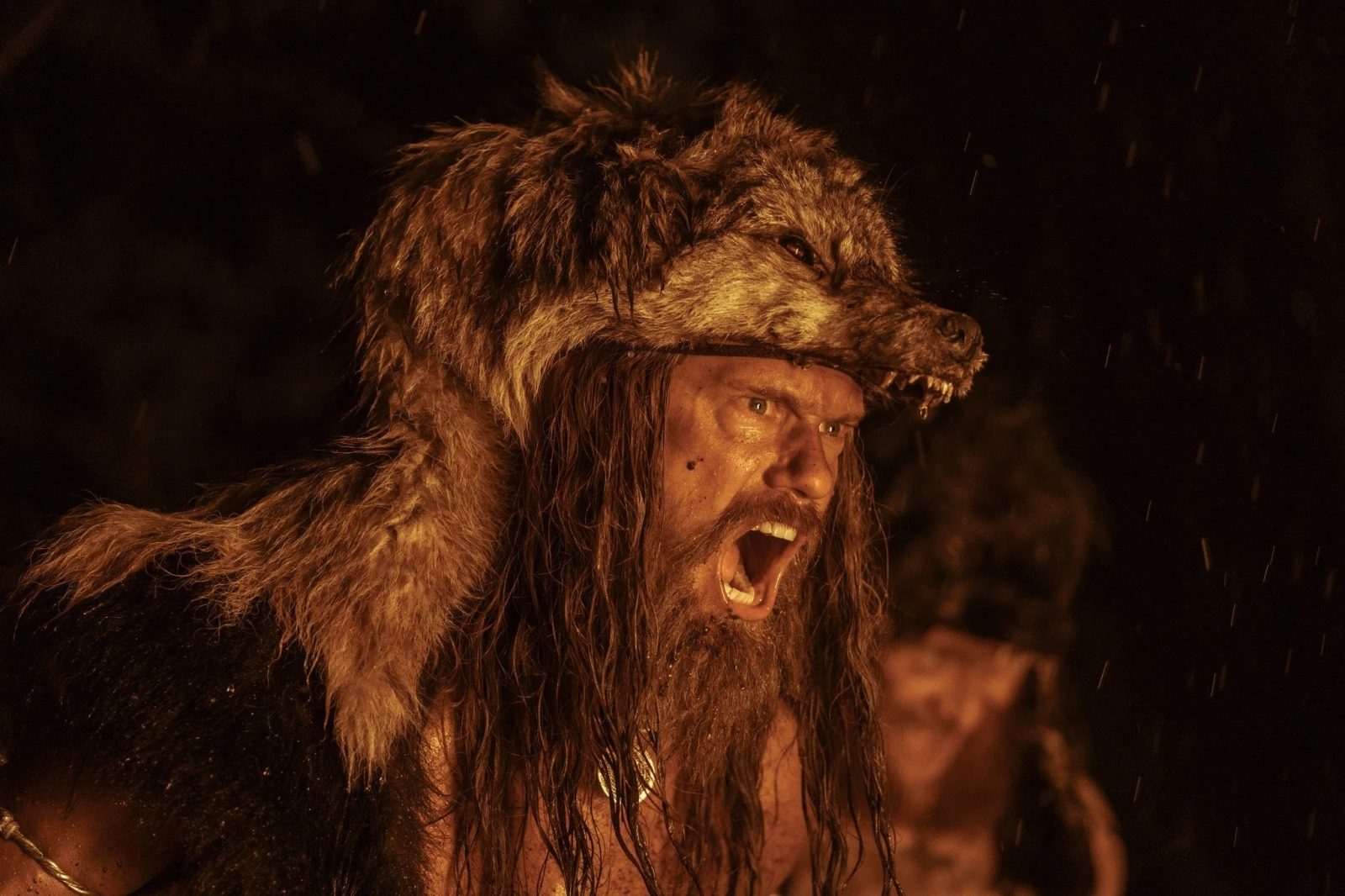Big, bold and brilliant in every frame, Robert Eggers’ striking Viking vision The Northman is alternately beautiful and brutal, a luridly gorgeous provocateur of a movie guaranteed to inspire a strong reaction in anyone who sees it—there will be no middle ground.
In a story conceived from a Scandinavian myth that purportedly inspired Shakespeare’s Hamlet, The Northman provides a similar grand stature in its primal story of ninth century vengeance minus, perhaps, the Bard’s poetic contemplation and this time served up with ice cold blood in its veins. No matter, because Eggers delivers a gripping, experiential movie so immediate it plunges you into mud, blood and antiquity so vividly that one can’t help being impressed with its audacious fidelity to world-building a bona fide epic.
Narratively, The Northman has much in common with many a sword and sorcery picture—an heir cast from a kingdom who experiences a reversal of fortune and becomes a savage, a slave and then fulfills a heroic destiny, all against an unforgiving backdrop of long swords, vicious battles and magical mystics (here including musician Björk in the role of a shadowy seeress). On this order, the picture is slightly less Excalibur and more Conan the Barbarian. But there is much more than genre here. Written by Eggars and Icelandic scribe Sjónut (Lamb), The Northman is a propulsive, first-class cinema mounted with rugged visceral grandeur, albeit one told in cool, desaturated tones.
With the ripped athletic brawn of a Men’s Health cover model and a steely, animalistic focus, a fine Alexander Skarsgård in an untamed, brutish, startlingly physical performance enlivens the Norse legend of Prince Amleth, who as a boy (Oscar Novak) witnesses the murder of his father, King Aurvandill (Ethan Hawke) at the hand of his uncle, Fjölnir (an oddly sympathetic Claes Bang) who then kidnaps his mother, Queen Gudrún (Nicole Kidman).
Amleth escapes the power play but his destiny, one of vengeance, is set in motion, Eggers reveling in the brutal viscera of violent combat at every turn of his Viking hero’s ferocious mission. Unlike Hamlet, Amleth has no use for soliloquies (he often speaks in guttural grunts or hushed, simple phrases) on the meaning of it all, which is quite clear—the destruction of his uncle and rescue of his mother; his is an external quest minus introspection.
Biding time and years, Amleth joins a marauding band of raiders (or berserkers, as legend named them) garbed in animal hides who furiously plunder pastoral villages, leaving death in their wake. But when Amleth learns that his duplicitous uncle has been dethroned and runs a remote Icelandic farming community, he hatches a plan to infiltrate the colony as a slave, carefully orchestrating a methodical campaign of terror against Fjölnir’s inner circle.
The cast at large deploys what sounds like a range of accents, which one guesses are Scandinavian-accented English, thick enough at times to present challenges in deciphering. Anya Taylor-Joy turns up as Olga, a Slavic slave claiming the magical and psychic powers of a sorceress, who presents Amleth with a love interest and potential alternative future exclusive of his quest. And the well-used, God-like Skarsgård is both physically imposing and, later, contemplative regarding the cycle of violence and retribution, a masculine maxim, that must be broken.
For much of the running time Kidman bides her time as well, and then nearly walks away with the film in a scene of such surprising fury it takes your breath away; this is writ-large, no-small-parts acting that brings down the house. Incidentally, Skarsgård and Kidman, with an eleven-year-age gap, produced similar incendiary combustion in HBO’s Big Little Lies.
The $70 million budget brought Eggers scale but also reportedly studio oversight, and The Northman is undoubtedly the accomplished, thirty-eight-year-old director’s most commercial picture after a pair of celebrated, smaller indie outings including 2015’s elegant, spare Puritan creep out The Witch and 2019’s two-handed study of men and madness The Lighthouse. This time, as a commercial film the focus is predictably more linear, didactic and plot-driven (although since the picture embraces magic and mysticism Eggers exploits opportunities for hallucinatory visual experimentation). If The Northman is slightly less inventive as narrative than its predecessors it may be because it is slightly more prosaic as story.
In sum the picture is a fairly straightforward and uncluttered tale relatively free of subtext or complexity. But while it may take place in a world where dueling swords and bloodshed were the order of the day (and the picture contains gruesome dismemberments, decapitations and depravity) and only the massive black crow soaring above the melee is truly safe from its spoils, Eggers has fashioned what might have been merely action movie spectacle into a thrilling, medieval, high art picture about the cost of revenge on the soul and the unbendable nature of men to perpetuate savagery.
Eggers’ visions recall everything from Ridley Scott’s Gladiator to the outrageous Ken Russell in its fever-dream, hallucinatory final act featuring a naked Amleth and Fjölnir in a mano-a-mano showdown (reminiscent of Russell’s famous Women in Love match between Oliver Reed and Alan Bates) set at the foot of a lava bubbling volcano crater. Such command of vision flows across every shot of The Northman, Eggers crafting a singular studio picture with ideas, intelligence and mad genius.
4 stars.



